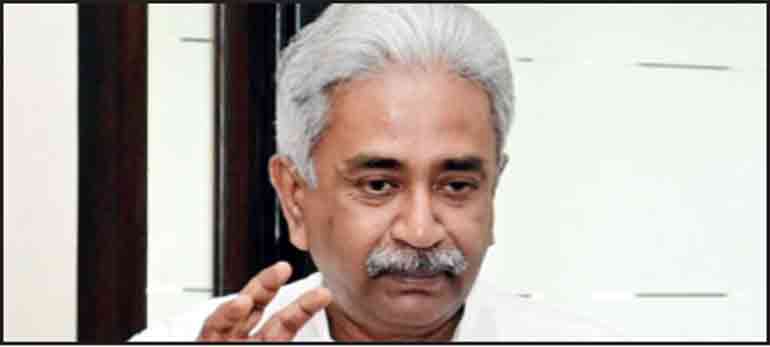Wednesday Feb 18, 2026
Wednesday Feb 18, 2026
Wednesday, 19 November 2025 00:23 - - {{hitsCtrl.values.hits}}

Sarvodaya Shramadana Movement President
Dr. Vinya Ariyaratne
Sarvodaya Shramadana Movement President Dr. Vinya Ariyaratne said recent enforcement actions and political pledges have signalled greater willingness to address corruption, but these steps were still insufficient to transform entrenched systems of rent-seeking.
He made the remarks at a recent Colombo forum where University of London economists presented new research on the political economy of public debt and contracting in Sri Lanka.
“The law is being enforced now and corruption is being addressed as a strong political commitment, but I don’t see it being able to change the system. It will take time,” he told participants.
He agreed with the SOAS team’s argument that vertical tools, laws, audits and transparency, are not enough without bottom-up checks from actors who have power and self-interest to enforce rules.
However, he questioned the feasibility of such mechanisms in the Sri Lankan context, especially for large infrastructure investments.
Civil-society organisations, he noted, have in recent years attempted to build community-based feedback systems to monitor public spending and demand information from local authorities.
“For massive infrastructure projects, I don’t think that will happen here, or whether it is even feasible at this point,” he said, pointing to limited public expertise and the highly technical nature of procurement and pricing.
He also flagged a political challenge – public perception that anti-corruption action is selective, despite a functioning court process.
This, he said, undermines confidence in the possibility of sustained and impartial oversight. “Right now, we as ordinary citizens are watching what’s happening, but actions taken are viewed as political,” he said.
While every ministry now has an anti-corruption unit and action plan, and the Commission to Investigate Allegations of Bribery and Corruption is expanding community components, Dr. Ariyaratne said these efforts remain largely post-implementation tools.
Oversight typically occurs after contracts are awarded, not at the point where overpricing is locked in. “All the overpricing happens at the stage of assessments. The public don’t have the knowledge or expertise to understand how these things are done,” he said.
He added that consulting communities at scale, such as during the IMF governance diagnostic exercise, required political endorsement and sustained commitment that are not yet evident.
“To institutionalise such a thing will take a lot of commitment,” he said, cautioning that Sri Lanka’s centralised decision-making culture leaves little room for independent monitoring of large projects.